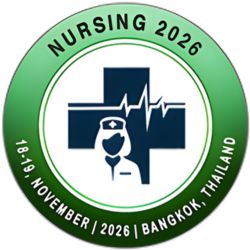Track: Infection, Prevention and Control

The Spread of Infectious Diseases
The spread of infectious diseases refers to the transmission of
harmful microorganisms such as bacteria, viruses, and fungi from one individual
or community to another. Factors like global travel, population density, and
environmental conditions influence how quickly and widely diseases can spread,
leading to public health concerns and requiring rapid containment measures.
Controlling Infectious Diseases Within Communities
Controlling infectious diseases within communities involves
implementing measures like vaccination, public health education, sanitation
improvements, and disease surveillance to prevent outbreaks. These strategies
aim to reduce transmission, protect vulnerable populations, and ensure early
identification and treatment of infections, minimizing the overall impact of
infectious diseases on community health.
Medical Interventions
Medical interventions are actions taken to diagnose, treat, or
prevent diseases and health conditions. In the context of infectious diseases,
these may include antibiotics, antivirals, vaccines, and supportive care.
Medical interventions aim to control the spread of infections, treat affected
individuals, and prevent further complications or outbreaks in the population.
Infection Control in Healthcare Facilities
Infection control in healthcare facilities involves practices and
protocols designed to prevent the spread of infections among patients and
healthcare workers. This includes hand hygiene, sterilization of medical
equipment, use of personal protective equipment (PPE), and proper waste
management. Infection control measures are critical to ensuring patient safety
and minimizing healthcare-associated infections.
Infection Control Programmes Globally
Infection control programs globally are structured initiatives
that address the prevention and control of infectious diseases across different
regions. These programs focus on surveillance, standardization of protocols,
education, and improving healthcare infrastructure. Global efforts aim to
reduce the spread of infectious diseases, especially in low-resource settings,
to protect public health and prevent pandemics.
Infection Control in Disaster and Conflict Settings
In disaster and conflict settings, infection control is critical
due to overcrowding, limited resources, and compromised healthcare systems.
Measures include providing clean water, sanitation, immunization, and hygiene
education to prevent outbreaks of diseases like cholera or respiratory
infections. Ensuring infection control in these environments helps reduce
morbidity and mortality during crises.
Improving Social Determinants
Improving social determinants of health involves addressing
factors like education, income, housing, and access to healthcare that
influence overall well-being. By improving these conditions, populations are
better equipped to prevent and manage infections, leading to improved health
outcomes. Addressing social determinants is key to reducing health disparities
and enhancing public health.
Scientific Highlights
- Nursing in Healthcare
- Nursing Education and Research
- Primary Health Care
- Nursing and healthcare informatics
- Nursing in Women's Health
- Pediatrics and Neonatal Nursing
- Critical Care and Emergency Nursing
- Occupational nursing and Safety Health
- Role of Nurses in Covid 19 Pandemic
- Midwifery
- Patient Safety and Nursing Care Quality
- Infection, Prevention and Control
- Gynecology and Obstetrics
- Cervical Cancer
- Pregnancy Care and Child Birth
- Sexually Transmitted Diseases (STD)
- Urogynecology


